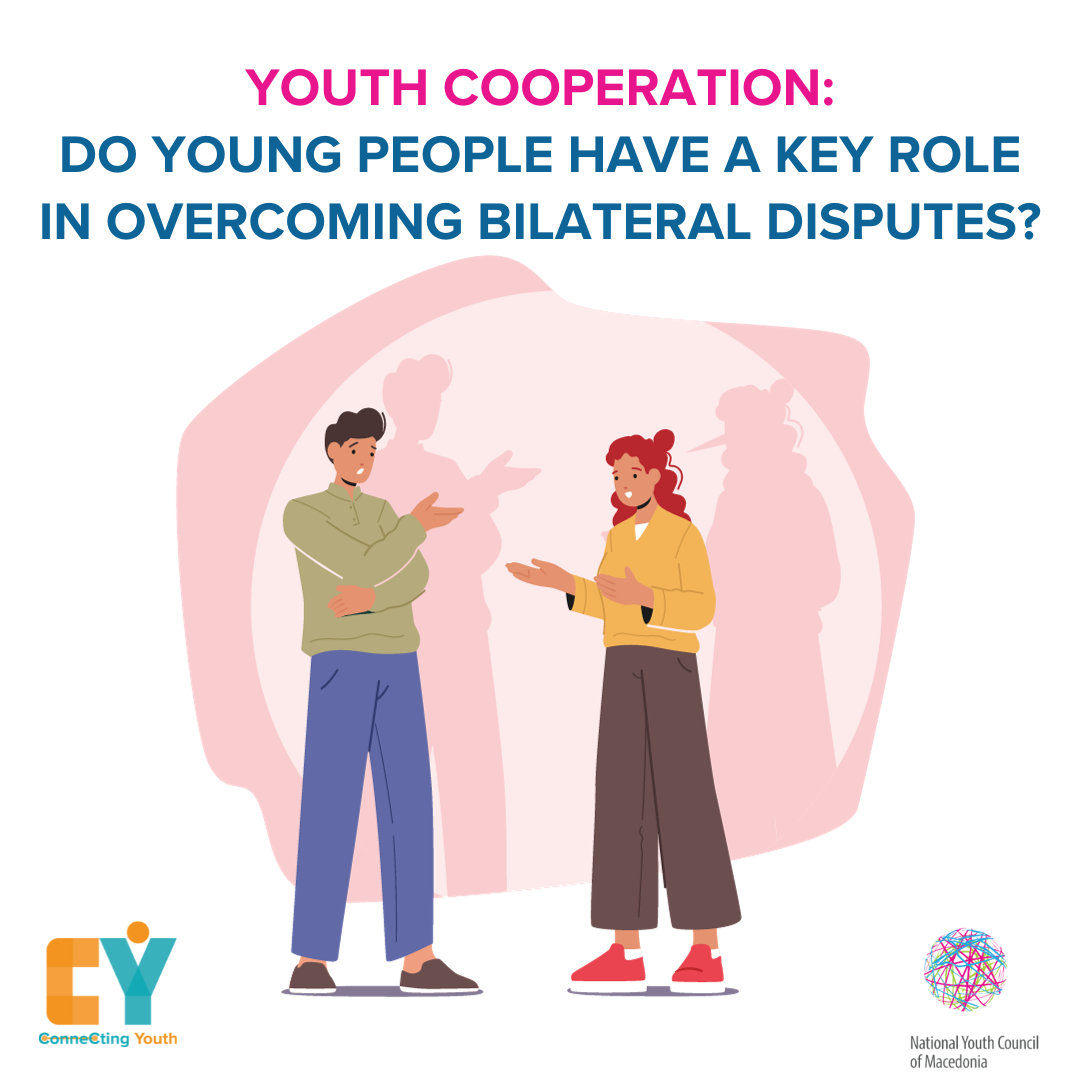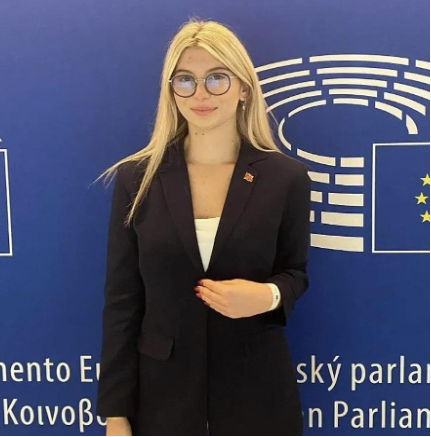23.08.2023

Intriguingly, one might ask: can the enthusiasm, creativity, and resilience of youth truly play a pivotal role in overcoming long-standing bilateral disputes? Is it possible that their fresh perspectives, unencumbered by the weight of history, can carve new paths toward mutual understanding and cooperation?
Starting from the case of North Macedonia and its path towards the EU, so far, we have witnessed a number of disputes that occurred on our way there. And we’re not done yet. One of the primary obstacles affecting Western Balkans and impeding their aspirations to join the EU is generally acknowledged to be bilateral concerns - especially for those countries who aspire to be part of the EU and the issues between them and their neighboring countries who are already members of the EU.
In terms of bringing the Western Balkans closer to the EU, in 2014, the Berlin Process was created and subsequently, the Regional Youth Cooperation Office was born. In that year, the six governments formally ratified the accord that established RYCO. Numerous youth organizations in the area have long argued for more official commitment to and funding for youth exchange throughout the Western Balkans in order to facilitate young people's interactions and help them break down the still-severe barriers that exist there. The realization of the promise of uniting the region through infrastructure projects can also be considered as an unrealized success, whereas RYCO can be seen as a visible, primary achievement.
Another, I would say, beacon of hope, representing the power of dialogue and diplomacy in fostering bilateral reconciliation is the Prespa Agreement.
The Action Plan provided by this agreement includes in itself an establishment of the Greek-Macedonian Office for Youth Cooperation. The Youth Cooperation Office is promoting youth collaboration between the two countries, emphasizing the values of reconciliation and cultivating strong neighborly bonds, in the spirit of reconciliation and good neighborly relations. In this case, it’s imperative to note that the process is led by youth civil society, specifically the youth organization Youth Alliance Krushevo and its Greek partners, through the Cooperation 4 Common Future Initiative.
While these examples are undoubtedly holding immense importance when it comes to resolving bilateral disputes, we must not forget that other existing formal and informal platforms for youth cooperation and reconciliation do exist, the Connecting Youth Platform included, that can undeniably be labeled as ‘providers of opportunities’ for youth to actively participate in regional discussions, helping to shape the future of the Western Balkans.
In the quest for effective conflict resolution in bilateral disputes, it is imperative to explore innovative approaches that harness the power of youth. Traditional methods have often fallen short, but by embracing fresh perspectives and leveraging the unique qualities of young individuals, we can forge a path towards lasting peace.
Youth-led mediation as an example can revolutionize the conflict resolution landscape. Ultimately, the youth of the Western Balkans have the power to transcend historical divisions, challenge entrenched narratives, and foster a sense of common purpose. Their energy, idealism, and determination to create a better future make them invaluable agents of change in the pursuit of lasting peace and reconciliation in the region. Young people from the Western Balkan region and beyond want to be part of the European family, aspiring for greater integration, cross-cultural exchange, and collaboration with their European counterparts. We do envision a future where borders do not limit our opportunities, where we can contribute with our unique perspectives and talents to a united Europe, without holding onto narratives that divide us.
As a young person from North Macedonia, experiencing the first-hand bilateral issues that are ongoing in my country, I am deeply committed to advocating for dialogue, understanding, and peaceful resolution. With a determination to bridge divides and foster cooperation, I believe that together, we can pave the way for a brighter future that embraces unity, reconciliation, and mutual respect among nations. As we strive to overcome challenges, I am dedicated to playing an active role in shaping a more harmonious and connected world, where our generation can build lasting relationships and work towards a shared vision of prosperity and cooperation and to finally, turning dreams of a united European family into a vibrant reality.

Iva Naskova is a Program Assistant at the National Youth Council of Macedonia, who joined the team at the beginning of 2023. She is a 22-year-old young woman studying Political Science at the Faculty of Law “Iustinianus Primus” in Skopje. She is a former Youth Delegate from the Macedonian delegation to the Council of Europe - Congress of Local and Regional Authorities and currently a Young European Ambassador as part of the WeBalkans, the EU Regional Communication Programme for the Western Balkans (DG NEAR). She possesses a comprehensive understanding of the myriad complexities of the democratic processes and has dedication towards fostering a prosperous future for the Western Balkans.